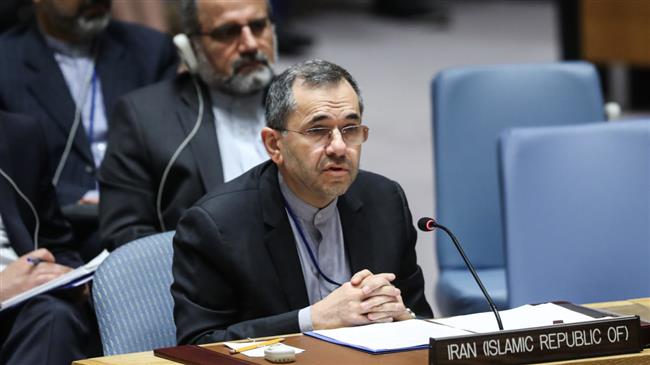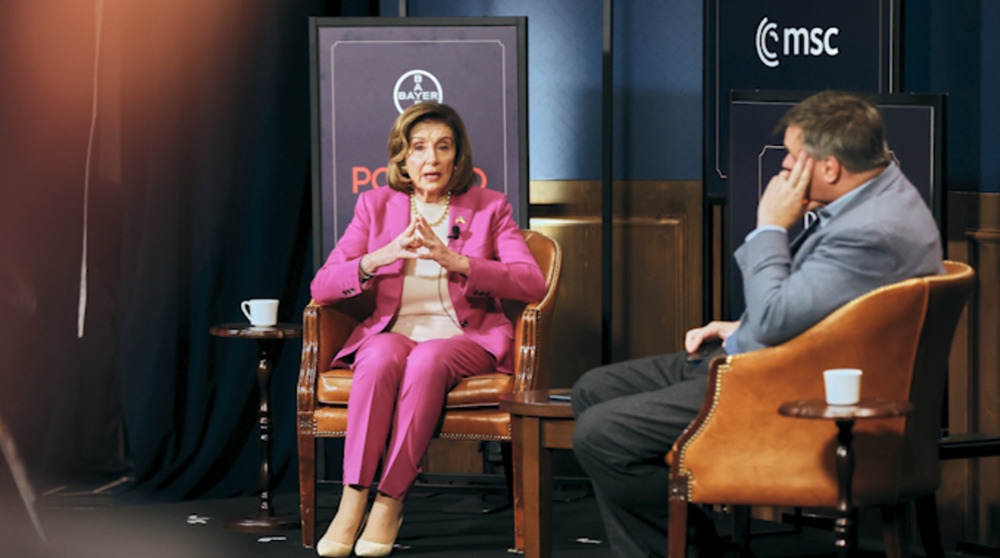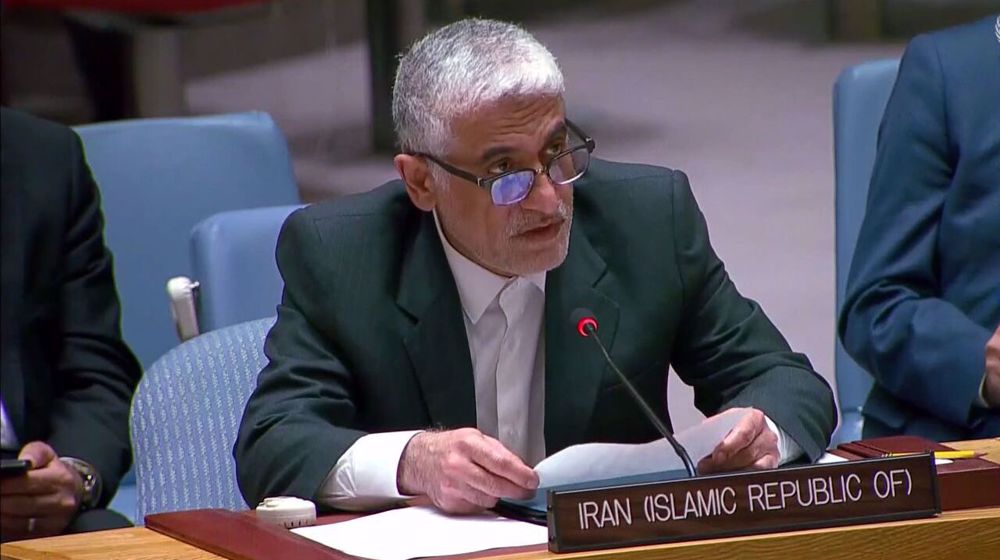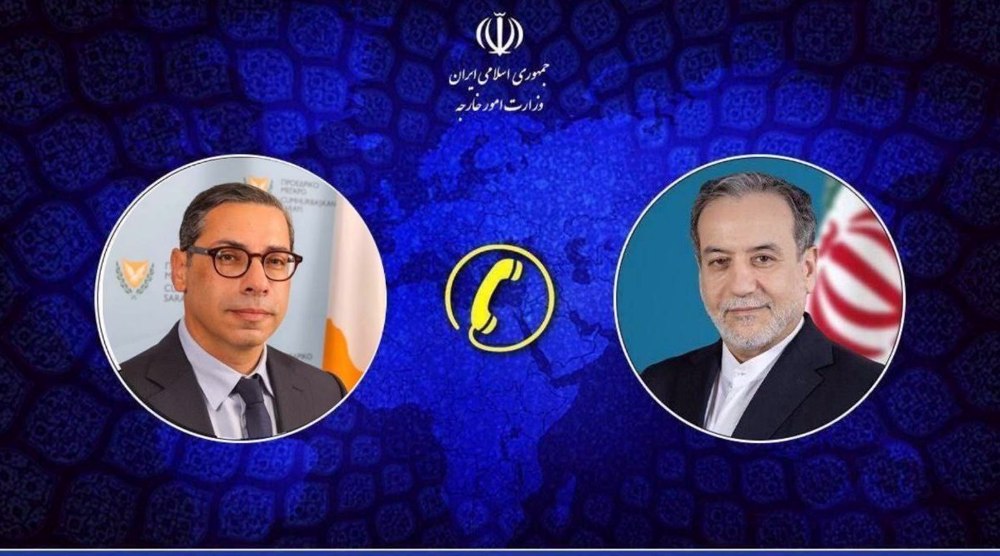Iran: US seeks to hide 'economic terrorism' with arms embargo call
Iran’s UN envoy says a recent US call on the world body to extend an arms embargo on Tehran is yet another attempt by Washington to divert attention from its economic terrorism.
Majid Takht-Ravanchi made the comments in a post on his Twitter account on Sunday, one day after US Secretary of State Mike Pompeo urged the UN Security Council to prolong the arms embargo on Iran, set to expire in October.
“Yet another attempt by US to distract from its continued #EconomicTerrorism on the Iranian people: this time, US is calling on #UNSC to violate its very resolution 2231, and continue arms restrictions on Iran,” he tweeted. “But US will not succeed in wooing others to violate int'l law.”
Yet another attempt by US to distract from its continued #EconomicTerrorism on the Iranian people: this time, US is calling on #UNSC to violate its very resolution 2231, and continue arms restrictions on Iran.
— Majid Takht Ravanchi (@TakhtRavanchi) April 19, 2020
But US will not succeed in wooing others to violate int'l law.
UN Security Council Resolution 2231 endorsed the 2015 international nuclear agreement, officially known as the Joint Comprehensive Plan of Action (JCPOA), from which Washington unilaterally withdraw in May 2018 and reimposed sanctions on Iran.
Under the resolution, the UN arms embargo on Iran - in place since 2006/2007- will be lifted in October 2020, five years after the JCPOA took effect.
The US has repeatedly expressed its anger at the possible termination of restrictions on Iran's import and export of arms.
Washington has already been infuriated by the failure of its attempts to coerce the remaining signatories to the JCPOA to follow suit in scrapping the JCPOA.
Pompeo took to Twitter on Saturday to claim that lifting the arms embargo imposed on Iran may give rise to violence in the Middle East.
"The arms embargo on Iran – the world’s leading state sponsor of terror – expires six months from today. The UN Security Council (UNSC) must extend the embargo before Iran’s violence escalates and they start a new arms race in the Middle East. The clock is ticking," he said.
In response, Russian Permanent Representative to International Organizations in Vienna Mikhail Ulyanov stressed that the risk of an arms race could only be reduced through collective efforts, not unilateralism.
“Usually an arms race is not unilateral. It is a collective endeavor either at level of great powers or in regional&subregional context. A risk of arms race can hardly be removed through arms embargo against one country. This task requires collective efforts through negotiations,” he tweeted.
Usually an arms race is not unilateral. It is a collective endeavor either at level of great powers or in regional&subregional context. A risk of arms race can hardly be removed through arms embargo against one country. This task requires collective efforts through negotiations. https://t.co/v3tFHOLLSm
— Mikhail Ulyanov (@Amb_Ulyanov) April 18, 2020
In November 2019, Iran’s President Hassan Rouhani said the country considers the lifting of the UN arms embargo “a huge political success.”
Iran’s shortest rail route between China and Europe
'Shameful': Hamas decries Western systemic campaign against UN expert Albanese
Ethics in suspension: Epsteinization of power in today’s post-shame politics
Trump knows he cannot use military force to press Iran into accepting Israeli demands: Mearsheimer
Iran president vows to fast-track corridor projects to ensure regional security
VIDEO | Press TV's news headlines
Exposed: Leaked docs show monarchists rallying Iranian diaspora to back attack on Iran
Iran main obstacle to realization of ‘Greater Israel’ scheme: Hezbollah










 This makes it easy to access the Press TV website
This makes it easy to access the Press TV website